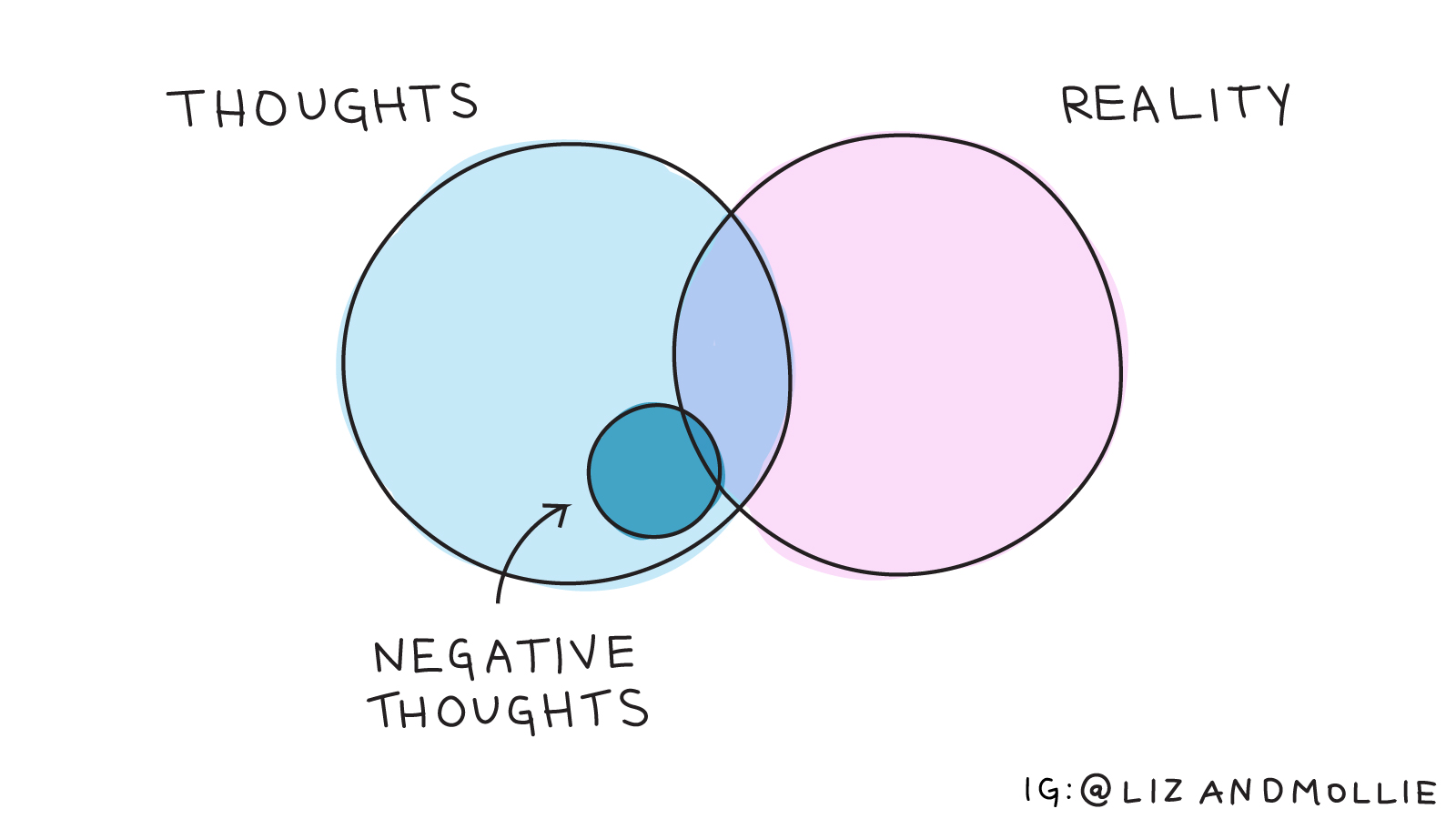
It’s been two days since you asked a coworker to look through your draft, but you haven’t heard anything from him yet. If you find yourself starting to anxiously obsess, thinking, He thinks I’m dumb, or My drafts are always bad and never worth reading, or He’s not responding because I’m a horrible employee that’s about to get fired, your self-talk has become self-destructive.
Nagging thoughts like these are one of the reasons we teamed up and spent the last three years studying the science of emotions — and their intersection with our lives at work — for our new book, No Hard Feelings: The Secret Power of Embracing Emotions at Work.
This obsessive kind of negative thinking is called rumination. It happens when our minds wander towards the negative events in the past or the possibility of negative events in the future. Rumination shouldn’t be confused with healthy reflection, during which we analyze specific elements of a problem to better understand it. When we ruminate, we’re not focusing on solutions, we’re fixating on the problems (or potential problems) themselves.
Harvard psychologists Matthew Killingsworth and Daniel Gilbert estimate that we spend only half of our time focused on the present. Why does that matter? We’re happiest when we live in the moment, no matter what we’re working on. In a study of over 5,000 people, Killingsworth and Gilbert found that a wandering mind is usually an unhappy mind.
The good news is that you can learn to bring your mind back to the present and stop ruminating. The first step to feeling better is to notice your cognitive distortions — the dirty tricks your brain plays on you. Psychologist Martin Seligman identified the “three P’s” we tend to focus on after a negative event:
Don’t give the P’s a chance! If you find yourself pessimistically obsessing, reframe your thoughts. Here are some ideas:
Another way to stop yourself from ruminating is through social distancing. Try to look at your situation through someone else’s eyes. Ask yourself, What advice would I give to a friend who felt similarly? This question forces you to step outside negative thinking patterns.
Stressors fall into two categories: those you can do something about (the Withins) and those beyond your control (the Beyonds). If you’re anxious because of Withins — unanswered emails in your inbox or an impending deadline — the easiest way to feel better is to complete the thing that is stressing you out. As the American painter and writer Walter Anderson has noted: “Nothing diminishes anxiety faster than action.”
How do you stop stressing about the things you can’t control? First, you have to be diligent about recognizing what you can’t control. If you feel responsible for the Beyonds, you’ll never be able to confidently say you’ve done enough and relax.
Here’s how psychologist Nick Wignall separates the Withins and the Beyonds: every day, he schedules 5 to 15 minutes to write down all his anxieties. He then highlights everything that is 1) an actual problem, 2) urgent (it can be done in the next day or two), and 3) within his control. Nick would not highlight a hypothetical worry like, What if I get sick before the big client meeting next week? He would highlight something like, I forgot to reply to Christine’s email. For each highlighted problem, Nick sets a reminder to complete the next smallest step he can take (e.g. “Respond to Christine’s email tomorrow at 9 a.m.”).
Lastly, remember your thoughts are simply that: thoughts. Acknowledge them, but recognize they are not inevitable truths (even if they feel true). We all have many voices in our heads, but we also get to decide which ones we listen to and how we respond. With practice, we can start to develop a mental immunity to stress by staying in the present and taking care of the things within our control.
More Must-Reads from TIME
- Where Trump 2.0 Will Differ From 1.0
- How Elon Musk Became a Kingmaker
- The Power—And Limits—of Peer Support
- The 100 Must-Read Books of 2024
- Column: If Optimism Feels Ridiculous Now, Try Hope
- The Future of Climate Action Is Trade Policy
- FX’s Say Nothing Is the Must-Watch Political Thriller of 2024
- Merle Bombardieri Is Helping People Make the Baby Decision
Contact us at letters@time.com